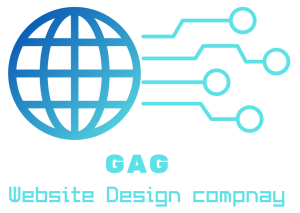In today’s digital age, a strong online presence is vital for businesses and individuals alike. “The Importance of Website Maintenance ” Central to maintaining this presence is the regular maintenance of your website. From ensuring security to optimizing performance, website maintenance plays a crucial role in sustaining a healthy online presence. In this article, we’ll delve into the importance of website maintenance and explore how it contributes to the success of your online endeavors.
Introduction to The Importance of Website Maintenance

Website maintenance encompasses a series of tasks aimed at keeping a website functioning smoothly, securely, and effectively. It involves regular updates, security checks, content management, and performance optimizations to ensure that the website meets the evolving needs of users and technology.
Why Website Maintenance Matters:
- First Impressions: Your website is often the first point of contact for potential customers or visitors. A well-maintained site creates a positive impression and instills trust in your brand or organization.
- Security: With cyber threats on the rise, maintaining the security of your website is paramount. Regular updates and security patches help protect against vulnerabilities and reduce the risk of data breaches or hacking attempts.
- User Experience: A smooth and user-friendly experience is essential for retaining visitors and encouraging them to explore your site further. Regular maintenance ensures that navigation is intuitive, pages load quickly, and content remains relevant and engaging.
- Search Engine Optimization (SEO): Search engines favor websites that are regularly updated with fresh, high-quality content. By keeping your site well-maintained, you can improve its visibility in search engine results and attract more organic traffic.
- Performance: Slow-loading pages or broken links can frustrate users and drive them away from your site. Through regular maintenance, you can identify and address performance issues, optimizing your website for speed and efficiency.
- Adaptability: Technology and user preferences are constantly evolving. Regular maintenance allows you to adapt your website to changes in design trends, device compatibility, and user behavior, ensuring that it remains relevant and effective over time.
Importance of Regular Updates
Regular updates are crucial for the health and functionality of your website. Whether it’s updating the core software, plugins, themes, or content, staying current ensures that your site remains secure, optimized, and compatible with evolving technologies. Here’s why regular updates are essential:
- Security Patching: One of the primary reasons for regular updates is to patch security vulnerabilities. Hackers constantly exploit weaknesses in outdated software to gain unauthorized access to websites. By promptly applying updates, you close these loopholes and protect your site from potential threats.
- Bug Fixes and Performance Improvements: Updates often include bug fixes and performance enhancements that address issues identified in previous versions. These improvements can result in faster load times, smoother functionality, and an overall better user experience for visitors to your site.
- Compatibility with New Technologies: As technology evolves, so do web standards and protocols. Regular updates ensure that your website remains compatible with the latest browsers, devices, and operating systems. This compatibility is essential for reaching and engaging with your target audience across various platforms.
- Feature Enhancements: Updates may introduce new features or functionalities that can enrich the user experience or streamline administrative tasks. By staying updated, you can take advantage of these enhancements to better meet the needs of your audience and achieve your business objectives.
- Compliance with Regulations: Various regulations and standards govern website operations, particularly concerning data privacy and accessibility. Regular updates help ensure that your site remains compliant with relevant laws and guidelines, reducing the risk of legal consequences or reputational damage.
- Staying Ahead of the Competition: In today’s competitive online landscape, staying stagnant is akin to falling behind. Regularly updating your website demonstrates your commitment to providing value to your audience and staying relevant in your industry. It helps you stay ahead of competitors who may neglect their online presence.
Enhancing Security Measures
Ensuring the security of your website is paramount in maintaining a healthy online presence. Cyber threats continue to evolve, making it essential to implement robust security measures to protect your site and the sensitive information it contains. Here’s why enhancing security measures is crucial:
- Protection Against Cyber Attacks: Websites are frequent targets for various cyber attacks, including malware injections, DDoS attacks, and phishing attempts. Implementing security measures such as firewalls, malware scanners, and intrusion detection systems helps safeguard your site against these threats, minimizing the risk of data breaches or service interruptions.
- Securing User Data: Many websites collect and store sensitive user information, such as personal details, payment credentials, and login credentials. A breach of this data can have severe consequences for both users and businesses, including financial losses and reputational damage. By implementing encryption, access controls, and secure transmission protocols, you can protect user data from unauthorized access or interception.
- Preventing Website Defacement: Hackers may deface websites by replacing legitimate content with malicious or offensive material. This not only tarnishes your brand’s reputation but also undermines user trust and credibility. Regular security audits, strong authentication mechanisms, and timely patching of vulnerabilities help prevent such incidents and maintain the integrity of your website.
- Maintaining Business Continuity: A compromised website can disrupt your business operations, leading to lost revenue and customer trust. Implementing backup and disaster recovery plans ensures that you can quickly restore your website to a functional state in the event of an attack or system failure, minimizing downtime and mitigating the impact on your business.
- Compliance Requirements: Depending on your industry and geographical location, you may be subject to various regulatory requirements governing data security and privacy. Failure to comply with these regulations can result in hefty fines, legal liabilities, and damage to your reputation. By implementing security measures that align with industry standards and regulatory guidelines, you demonstrate your commitment to protecting sensitive information and meeting compliance obligations.
- Building Trust with Users: Security breaches can erode user trust and confidence in your brand, driving them away to competitors who prioritize security. By investing in robust security measures and transparent communication about your security practices, you can instill confidence in your users and foster long-term relationships built on trust and reliability.
Optimizing Performance and Speed

A fast and responsive website is crucial for providing users with a positive experience and maximizing engagement. Optimizing performance and speed involves various strategies aimed at reducing loading times, improving responsiveness, and enhancing overall user satisfaction. Here’s why it’s essential to prioritize performance optimization:
- User Experience Improvement: Studies have shown that users are increasingly intolerant of slow-loading websites, with many abandoning a site if it takes more than a few seconds to load. By optimizing performance and speed, you can ensure that your website loads quickly across devices and platforms, providing users with a seamless browsing experience that encourages them to stay and explore your content.
- Search Engine Rankings: Website speed is a crucial factor in search engine algorithms, with faster-loading sites often receiving higher rankings in search results. By optimizing performance, you can improve your website’s visibility and attract more organic traffic from search engines, ultimately driving growth and increasing your online presence.
- Mobile Responsiveness: With the proliferation of mobile devices, ensuring that your website is optimized for mobile users is more important than ever. Mobile-responsive design and optimization techniques such as lazy loading and image compression help deliver a fast and seamless experience to users accessing your site on smartphones and tablets, enhancing accessibility and engagement.
- Conversion Rate Optimization: Slow-loading pages can significantly impact conversion rates, leading to lost sales and missed opportunities. By optimizing performance and speed, you can reduce friction in the user journey, streamline the checkout process, and increase the likelihood of visitors taking desired actions, such as making a purchase or filling out a form.
- Bandwidth Efficiency: Optimizing performance not only benefits users but also reduces bandwidth consumption and server resources. Techniques such as caching, minification, and content delivery network (CDN) integration help minimize the amount of data transferred between the server and the user’s device, improving efficiency and scalability, particularly for high-traffic websites.
- Competitive Advantage: In today’s competitive online landscape, a fast and responsive website can give you a significant edge over competitors. By delivering an exceptional user experience and outperforming slower-loading sites, you can attract and retain more visitors, differentiate your brand, and establish yourself as a leader in your industry.
Content Management and Freshness
Managing and updating content regularly is essential for maintaining relevance, attracting visitors, and sustaining engagement on your website. Content management involves creating, organizing, editing, and publishing content to meet the needs and interests of your target audience. Here’s why it’s crucial to prioritize content management and freshness:
- Relevance and Timeliness: Fresh and relevant content demonstrates to visitors that your website is active and up-to-date. Regularly updating your content ensures that it remains current, accurate, and aligned with the latest industry trends, news, and developments, keeping visitors informed and engaged.
- User Engagement: High-quality, engaging content is key to capturing and retaining the attention of your audience. By providing valuable information, insights, and resources that address their needs and interests, you can encourage repeat visits, increase time spent on your site, and foster deeper engagement with your brand or organization.
- Search Engine Optimization (SEO): Search engines favor websites that regularly publish fresh, high-quality content. By updating your content frequently and incorporating relevant keywords and topics, you can improve your site’s visibility and rankings in search engine results, driving organic traffic and expanding your online reach.
- Building Authority and Trust: Consistently publishing valuable, informative content establishes your website as a trusted resource within your industry or niche. By sharing expertise, thought leadership, and valuable insights, you can build credibility, authority, and trust with your audience, encouraging them to return to your site for future information needs.
- Promoting Social Sharing and Virality: Compelling content has the potential to resonate with audiences and be shared across social media platforms, extending your reach and driving traffic back to your website. By creating shareable content that educates, entertains, or inspires, you can amplify your message, increase brand awareness, and cultivate a loyal community of followers and advocates.
- Supporting Conversion Goals: Relevant, persuasive content plays a crucial role in guiding visitors through the buyer’s journey and ultimately converting them into customers or leads. By aligning your content with the needs and pain points of your target audience and incorporating clear calls-to-action (CTAs), you can nurture relationships, address objections, and drive desired actions on your website.
SEO Maintenance and Visibility

Search Engine Optimization (SEO) is crucial for ensuring that your website is visible to potential visitors on search engine results pages (SERPs). SEO maintenance involves ongoing efforts to optimize your website’s content, structure, and performance to improve its ranking and visibility. Here’s why SEO maintenance is essential:
- Increased Organic Traffic: A high-ranking position in search engine results can significantly increase the visibility of your website and attract more organic traffic. By optimizing your site for relevant keywords, improving site speed, and enhancing user experience, you can improve your chances of ranking well in search results and driving qualified traffic to your site.
- Better User Experience: Search engines prioritize websites that provide a positive user experience. SEO maintenance involves optimizing your site’s navigation, improving page load times, and ensuring mobile responsiveness, all of which contribute to a better user experience. By making your site more user-friendly, you can increase engagement, reduce bounce rates, and improve your search engine rankings.
- Stay Ahead of Algorithm Changes: Search engine algorithms are constantly evolving, with updates and changes occurring regularly. SEO maintenance involves staying informed about these changes and adjusting your optimization strategies accordingly. By keeping up-to-date with the latest SEO best practices and algorithm updates, you can ensure that your website remains competitive and maintains its visibility in search results.
- Competitive Advantage: In today’s competitive online landscape, SEO is essential for staying ahead of competitors and attracting potential customers. By consistently optimizing your website for search engines, you can outrank competitors, increase your online visibility, and capture a larger share of organic search traffic.
- Long-Term Sustainability: SEO maintenance is not a one-time task but an ongoing process that requires continual monitoring and optimization. By investing in long-term SEO strategies, you can build a strong foundation for your website’s visibility and ensure its sustainability over time. This approach helps you maintain consistent organic traffic and reduces your reliance on paid advertising channels.
- Maximize Return on Investment (ROI): SEO is a cost-effective way to drive targeted traffic to your website and generate leads or sales. By investing in SEO maintenance, you can maximize the return on your investment by attracting qualified leads and converting them into customers over time. This can lead to significant cost savings compared to other marketing channels.
Conclusion
In conclusion, the importance of website maintenance for a healthy online presence cannot be overstated. From regular updates and security enhancements to content management and SEO optimization, each aspect of maintenance plays a critical role in ensuring the success and sustainability of your website. By prioritizing maintenance tasks and investing in ongoing optimization efforts, you can enhance security, improve user experience, increase search engine visibility, and ultimately achieve your online goals. Remember, maintaining a website is not just a one-time task but an ongoing process that requires dedication, vigilance, and adaptation to the ever-changing digital landscape. By committing to regular maintenance, you can keep your website in peak condition, driving growth, engagement, and success for your business or organization.
Frequently Asked Questions (FAQs) About Website Maintenance:
1. Why is website maintenance important?
Website maintenance is crucial for several reasons. It ensures the security of your site, enhances user experience, improves search engine rankings, and keeps your content relevant and up-to-date. Additionally, regular maintenance helps you stay ahead of competitors and maintain a competitive edge in the online marketplace.
2. How often should I update my website?
The frequency of website updates depends on various factors, including the type of content you publish, industry trends, and user engagement. In general, it’s recommended to update your website regularly, whether it’s daily, weekly, or monthly, to keep content fresh and maintain relevance.
3. What security measures should I implement for my website?
To enhance the security of your website, consider implementing measures such as regular software updates, strong authentication mechanisms, SSL encryption, firewalls, malware scanners, and intrusion detection systems. Additionally, having a backup and disaster recovery plan in place can help mitigate the impact of security breaches or data loss.
4. How can I optimize my website’s performance and speed?
Optimizing performance and speed involves various strategies, including optimizing images and multimedia files, leveraging browser caching, minimizing HTTP requests, using a content delivery network (CDN), and optimizing code and scripts. Additionally, consider using tools like Google PageSpeed Insights to identify performance bottlenecks and make improvements accordingly.
5. What role does content management play in website maintenance?
Content management is essential for keeping your website’s content fresh, relevant, and engaging. Regularly updating and publishing new content helps attract visitors, improve search engine rankings, and establish your website as a valuable resource within your industry or niche. Content management also involves organizing and categorizing content to enhance navigation and accessibility.
6. How can SEO maintenance improve my website’s visibility?
SEO maintenance involves optimizing your website’s structure, content, and performance to improve its visibility in search engine results. By implementing SEO best practices, such as keyword research, on-page optimization, link building, and technical SEO improvements, you can increase your website’s chances of ranking higher in search engine results pages (SERPs) and attracting organic traffic.
7. What are the benefits of investing in website maintenance?
Investing in website maintenance offers numerous benefits, including improved security, enhanced user experience, higher search engine rankings, increased traffic and engagement, and a competitive advantage in the online marketplace. Additionally, regular maintenance can help you maximize the return on investment (ROI) from your website by driving conversions, generating leads, and supporting business growth.



